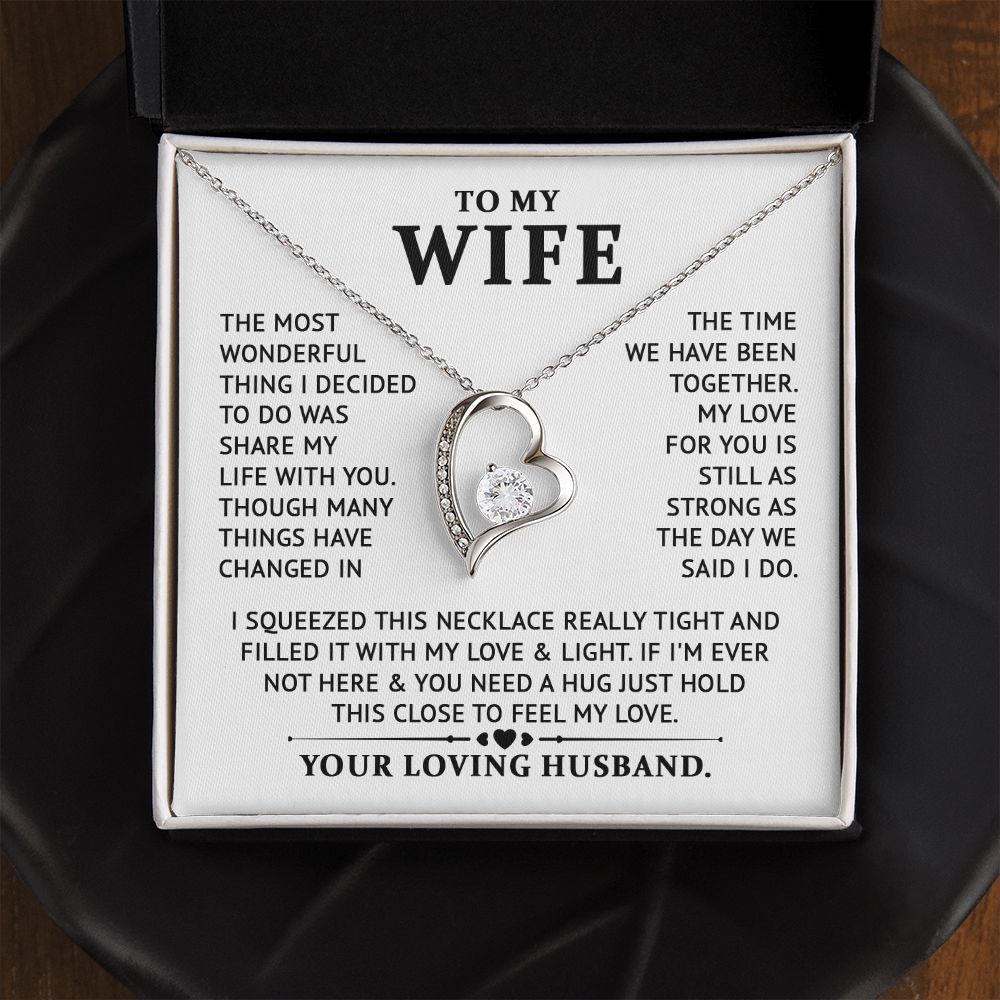Can Wearing a Necklace Cause Acne?
If you’re prone to acne, you may have noticed that breakouts tend to occur in the same spot where your necklace rests on your skin. This is because acne is caused by a build-up of oil and bacteria.
When these things are trapped against your skin by a piece of jewelry, they’re more likely to cause an infection.
It's possible that wearing a necklace can cause acne, but it's also possible that there is no link between the two.
There are a few potential explanations for why people might think necklaces cause acne. First, acne is often caused by bacteria, and when something rubs against the skin (like a necklace), it can spread bacteria and make acne worse. Second, jewelry can also cause irritation and inflammation on the skin, which could lead to more breakouts.
However, it's also possible that there is no real link between necklaces and acne. Most of the research on this topic has been inconclusive, so more studies are needed to determine if there is a connection or not. In the meantime,
10 Types of Acne and What They Mean
How Do You Know If You Are Allergic to Jewelry?
Do you have a collection of beautiful jewelry that you never get to wear because your skin breaks out every time you put it on? If so, you may be allergic to one of the metals in the jewelry. nickel is a common culprit, but allergies to other metals such as gold, silver, and copper are also not unheard of.

The good news is that there are ways to determine if you have a metal allergy.
One way to test for a metal allergy is to apply a small amount of the suspected allergen to a small area of skin, wait 24 hours, and then observe the area for any signs of irritation. If the skin becomes red, swollen, or itchy, it's likely that you're allergic to that metal.
Another way to test for a metal allergy is to have a patch test done by a dermatologist. This is where small amounts of different metals are applied to the skin and then covered with an adhesive bandage.
After 48 hours, the doctor will check the skin for any signs of reaction. Although these methods are not foolproof, they can give you a good idea as to whether or not you are allergic to a particular metal.
If you suspect that you might be allergic to jewelry, there are steps you can take to minimize your exposure to the allergen. For example, if you're allergic to nickel, look for jewelry that is made with alternative metals such as stainless steel or titanium.
You can also try coating your skin with a barrier cream before putting on jewelry, and be sure to remove any jewelry before going to bed. By taking these precautions, you can continue wearing beautiful jewelry without having to worry about an allergic reaction.
Can Necklaces Cause Chest Acne?
If you’ve ever noticed small, red bumps on your chest after wearing a necklace, you may be experiencing what’s known as “chest acne.” While it’s not as common as facial acne, chest acne can be just as frustrating. So, what causes this type of acne and how can you get rid of it?
Chest acne is caused by the same things that cause facial acne: excess oil production, clogged pores, and bacteria. When these factors come together on the skin of your chest, they can create the perfect environment for breakouts. Wearing a necklace only exacerbates the problem by trapping sweat and dirt against your skin.
The good news is that there are a few things you can do to clear up chest acne.
First, try washing your chest twice a day with a gentle cleanser. Exfoliating once or twice a week will also help to remove dead skin cells that can clog pores.
If over-the-counter treatments aren’t working, talk to your dermatologist about prescription options.
With some trial and error, you should be able to get your chest acne under control. In the meantime, consider ditching the necklace until your skin clears up!
How to Prevent Jewelry Rash?
If you’re one of the many people who experience jewelry rash, you know how annoying and uncomfortable it can be. Jewelry rash is a form of contact dermatitis that’s caused by metals in jewelry coming into contact with your skin. The good news is that there are a few things you can do to prevent jewelry rash.

One of the best ways to prevent jewelry rash is to choose hypoallergenic materials for your jewelry. Gold, platinum, and titanium are all good choices. You can also look for nickel-free or stainless steel options.
If you’re unsure about a particular piece of jewelry, ask a salesperson if they know what materials it’s made from. Another way to prevent jewelry rash is to make sure your skin is clean and dry before putting on your jewelry. This will help to reduce irritation and inflammation.
If you have sensitive skin, you may also want to consider using a barrier cream before putting on your jewelry. Finally, take off your jewelry when you’re doing activities that could cause sweating or other moisture buildup on your skin. This includes exercise, cooking, cleaning, and gardening.
Be sure to clean your skin thoroughly afterwards so that any irritants are removed.
How to Treat Jewelry Rash?
Do you have jewelry rash? If so, don’t worry, you’re not alone. Many people are allergic to the metals in jewelry, but there are ways to treat it.
Jewelry rash is a type of contact dermatitis that occurs when your skin comes into contact with certain metals. The most common culprits are nickel and gold, but other metals like cobalt and copper can also cause a reaction. The symptoms of jewelry rash include redness, itchiness, and swelling.
In severe cases, blisters may form. If you think you might have jewelry rash, the first step is to figure out which metal is causing the problem. The best way to do this is to see a doctor or dermatologist who can perform patch tests.
Once you know which metal is causing the issue, you can avoid wearing jewelry that contains that metal.
There are also some over-the-counter treatments that can help ease the symptoms of jewelry rash. One option is to apply a corticosteroid cream or ointment to the affected area several times a day.
You can also try using an antihistamine if your rash is particularly itchy. If these treatments don’t work, your doctor may prescribe a stronger medication. In most cases, jewelry rash isn’t serious and will go away on its own within a few weeks.
Can Silver Chain Cause Acne?
Silver has been used for centuries as a natural antibacterial agent. In recent years, silver-infused products have become popular as a way to help fight acne. Silver chain is one such product.
The claim is that silver can help to kill bacteria that cause acne and prevent future breakouts. But does silver really have these acne-fighting properties?
There is some evidence that silver does have antibacterial properties. However, there is no scientific evidence to support the claim that silver can help to fight acne.
In fact, some studies have actually found that silver may actually promote the growth of certain bacteria. So while silver may have some antibacterial effects, there is no evidence to suggest that it can help to fight acne.
To get the beautiful silver chain you can visit the store of fetchthelove. Where you can buy the beautiful jewlry with 50% off.
Can Earrings Cause Acne?
Acne is a very common skin condition that can be caused by a variety of things, including hormones, genetics, and even certain foods. While there are many potential causes of acne, one lesser-known factor that can contribute to this skin condition is wearing earrings.
That’s right – those pretty little pieces of jewelry that you love so much could actually be causing you to break out!
So, how exactly does wearing earrings cause acne? Well, it all has to do with the way that earrings can irritate the skin around the piercing. When your skin is irritated, it’s more likely to produce excess oil, which can then clog pores and lead to breakouts.
In addition, if you don’t clean your earrings regularly (and especially if you wear them while working out), they can also trap bacteria against your skin, leading to even more blemishes.
If you’re prone to acne or have noticed that you tend to break out around your ears after wearing earrings, it’s definitely worth giving up this fashion accessory for a while and seeing if your skin clears up. And when you do put earrings back in, be sure to clean them thoroughly on a regular basis both before and after wearing them and choose styles that are less likely to irritate your skin (such as studs instead of dangly earrings).
Does Necklace Cause Acne?
There is no definitive answer to this question as everyone’s skin reacts differently to different products and jewelery. However, there are a few things to keep in mind when considering whether or not a necklace may be causing your acne. First, consider the material the necklace is made of.

If it is made of a non-porous material like metal or glass, it is less likely to harbor bacteria that could cause acne. However, if the necklace is made of a porous material like wood or bone, it may be more likely to harbor bacteria. Second, consider how often you wear the necklace and how long you have been wearing it.
If you only wear it occasionally and have only been wearing it for a short period of time, it is less likely that the necklace is causing your acne.
However, if you wear the necklace frequently and/or have been wearing it for an extended period of time, there is a greater chance that the necklace is causing your acne. Finally, consider whether or not you clean your necklace regularly.
If you do not clean your necklace regularly, bacteria can build up on the surface of the jewelry and potentially cause acne.
What Things Trigger Acne?
There are a number of things that can trigger acne. Some of the more common triggers include:
- Hormonal changes –Acne is often worse around the time of puberty, during pregnancy or when starting/stopping birth control pills. This is because levels of the hormone testosterone increase at these times, which can stimulate the production of sebum (oil).
- Certain medications – Some medication such as corticosteroids, lithium and androgens can increase the risk of developing acne.
- Diet – A diet high in refined carbohydrates and sugar has been linked to an increased risk of developing acne. Dairy products may also contribute to breakouts for some people.
- Stress – Both physical and emotional stress can worsen acne symptoms.
Why am I Getting Chest Acne All of a Sudden?
If you’re experiencing chest acne all of a sudden, there are a few possible explanations.
First, it could be hormones. A rise in testosterone can cause an increase in sebum production, which can lead to clogged pores and breakouts. If you think this might be the case, consider talking to your doctor about birth control options or other hormonal treatments.
Another possibility is that you’re using a new product that’s irritating your skin. Switching to a gentler cleanser or moisturizer may help.
Finally, it could simply be that your chest is more susceptible to acne than other areas of your body. If this is the case, try washing your chest with a mild soap and water twice daily, and be sure to remove any sweat or excess oil as soon as possible after working out or being in hot weather.
Conclusion
Acne is a common skin condition that can be caused by many things, including hormones, diet, and even certain types of jewelry. Wearing a necklace, especially one that is tight or made of materials like nickel or copper, can irritate the skin and cause acne breakouts.
If you’re prone to acne or have sensitive skin, it’s best to avoid wearing necklaces altogether.
If you must wear one, try to choose a loose-fitting style made of hypoallergenic materials.























